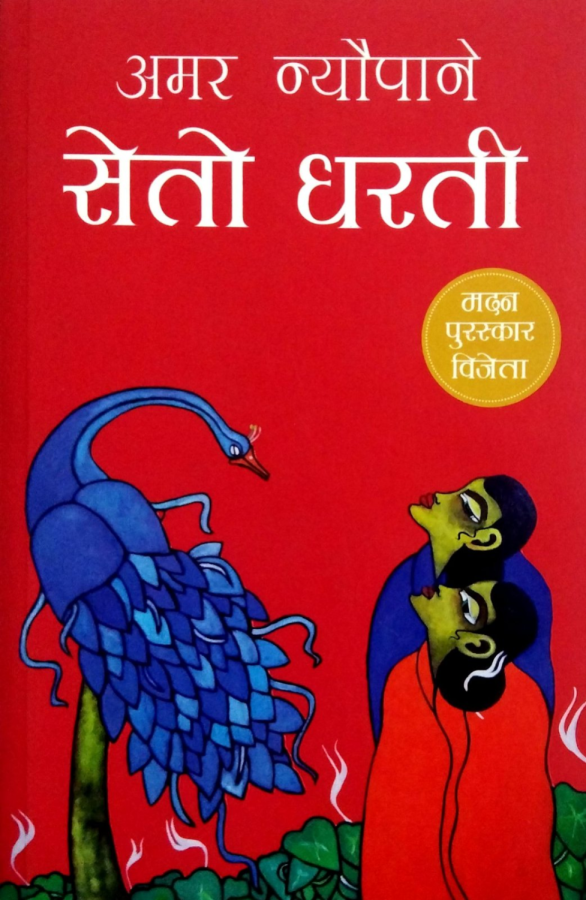‘Seto Dharti’: A heartbreaking story of love, loss and hope
“Seto Dharti” is a Nepali novel that portrays the suffering of women in traditional Nepalese society. It was published in 2012 and won the Madan Puraskar, the biggest literary award in Nepal.
“Seto Dharti” (“White Earth” in English) is a Nepali novel written by Amar Neupane that portrays the sad story of Tara, a country girl in Nepal who finds herself married to an adult against her will to uphold social standards and customs.
It was the first book I ever read in my native language so, when I first started reading it, I was taken aback by its captivating storyline and the innocent perspective of Tara, the protagonist.
Tara herself narrates her life, sharing her story from her birth as a girl in a traditional Nepalese society until her last moments. She bravely shares the childhood tragedies and heartbreaks she had buried her entire life.
I vividly recall the horror I felt when I learned of Tara’s marriage when she was only seven years old. It was even more heartbreaking to see her little sister go through the same experience.
The philosophical significance of “white earth” has a profound impact not only on Tara’s life, but to all the widows of her period. Being born as a woman was a burden in the repressive societal norms of ancient Nepal, as they had little individuality.
It was heartbreaking to see how Tara had to abandon all the apparels and bright colors she loved when she was supposed to construct an identity for herself. She was obliged to wear dull white apparels all her life because of her husband’s early death when she was just nine years old.
The envy she felt for nature because it was so vibrant, or the plain jealousy she felt for her close friend Radha for having a healthy spouse, is such a genuine emotion that Neupane has skillfully expressed via his writing.
Tara doesn’t hold back in expressing her feelings, from her crush on a childhood companion to the idea of having an unrestrained affair with men. She did nothing but contemplate and have these kinds of thoughts, but she never acted on them.
Even though I felt bad for Tara, I was more drawn to Radha since she consistently stood up for herself. The protagonist believes that Radha is her closest friend because she is everything Tara is not. She possessed the bravery Tara lacked, and despite sticking to society’s rules, Tara never found peace as Radha did by defying them. They are two opposed poles living in the same society.
Through Tara’s story, Neupane succeeded in conveying the stories of Nepalese women of that era. This tale follows a child who loses their innocence to society’s constricted norms and culture. As the story progresses, you will feel sympathy, grief, angst, pity and a variety of other feelings for Tara.
This book is a glimpse to the awful culture against women and how they have overcome all of its challenges to reach the present.
Edited by Aja Carter and LeSha’ Davis
Your donation will support the student journalists of Washburn University. Your contribution will allow us to purchase equipment and cover our annual website hosting costs.













